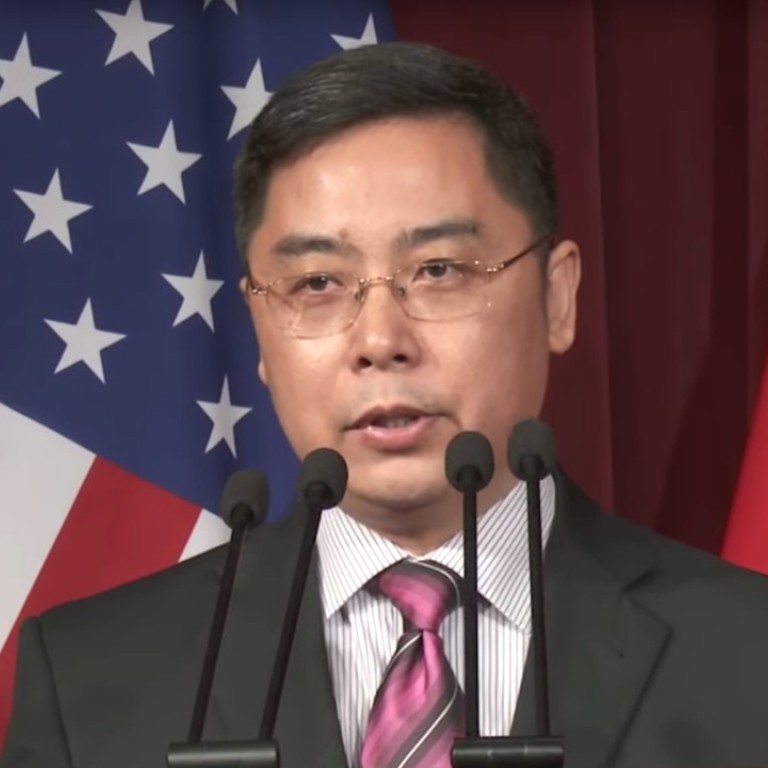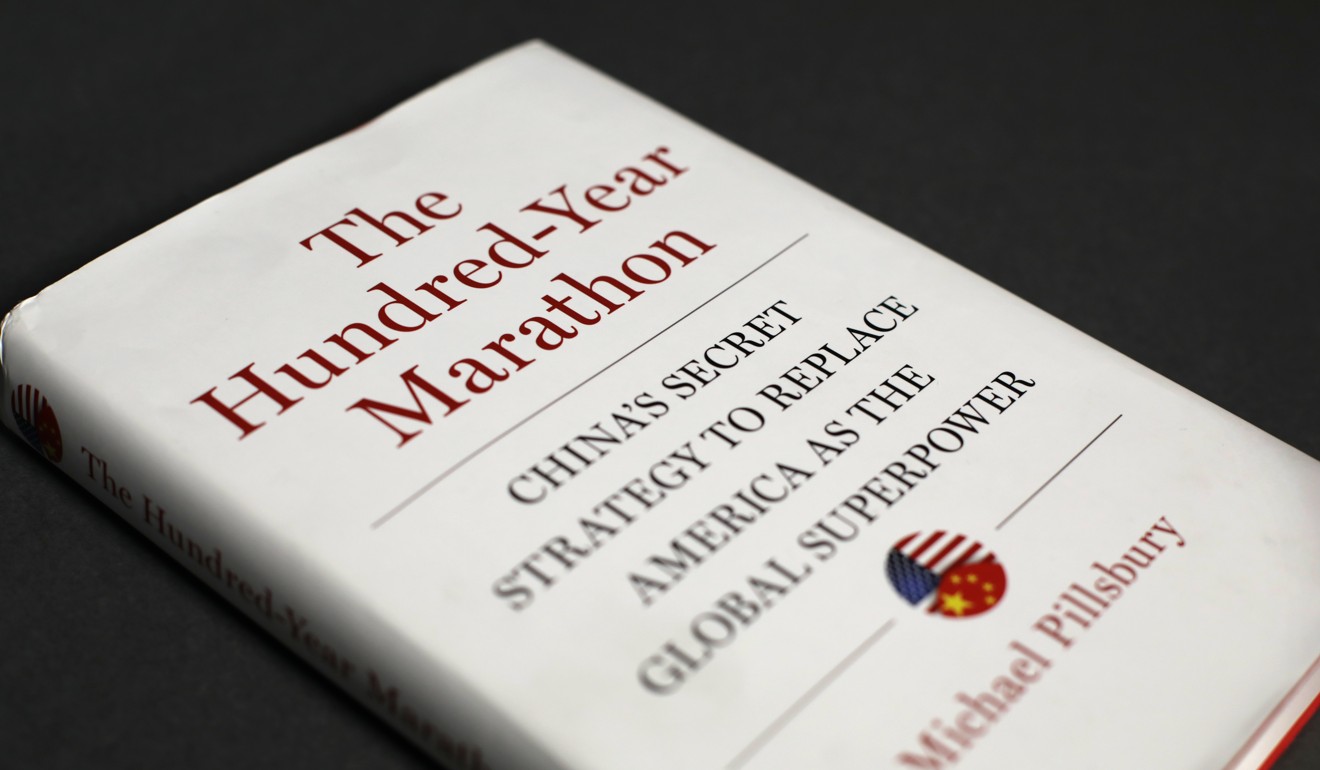
China’s ‘nationalist bubble’ partly to blame for suspicions over global role, envoy to US concedes
- Li Kexin of China’s US embassy says his country’s pride in advances and promotions by media may have played roles in raising foreign concerns
Nationalism and the Chinese media are just as much to blame for exaggerated perceptions of the country’s geopolitical strength as the imagination of foreign observers, Beijing’s number-two diplomat in the US said on Wednesday evening.
Impressions of China’s might were 60 per cent reality, 20 per cent the imagination of the outside world, and 20 per cent the result of the country’s “nationalist bubble we’ve created by ourselves”, said Li Kexin, deputy chief of mission at China’s US embassy in Washington.
In remarks delivered at the US-China Policy Foundation’s 2018 gala dinner, Li attributed that bubble to China’s sense of pride in being a “fast catching-up nation” – a state of affairs in which he said the media had played a “very bad role”.
Recent months have seen Beijing and its state media apparatus try to dampen rhetoric about the country’s technological advances, specifically the government’s “Made in China 2025” strategy.
The plan to become a world leader in technology and innovation has ruffled feathers at the highest levels of US government, with President Donald Trump last month calling the strategy “insulting” and citing it as evidence that China seeks to take over the world economically.
“Yes, we have made tremendous progress economically and [offered] substantial contribution to the world,” he said. “We are proud of it.
“But if you don’t see the appalling poverty in many parts of China, and those astonishing differences between regions, you will not understand the huge development agenda we face, [nor] how such issues like IPR, air pollution are so difficult to address.”
Inadequate protection of IPR – or intellectual property rights – of foreign companies is one of the core grievances driving the Trump administration’s trade war with China, with US officials claiming that American firms are forced to hand over technology in exchange for access to the Chinese market.
Speaking just days after China and the US agreed to a 90-day window of negotiations to seek resolution to the months-long trade dispute, Li, a career diplomat who once served as a counsellor within China’s mission to the United Nations in New York, said that Beijing was open to compromise but that the US could not expect the Chinese to “bend our principles under pressure”.
Invoking the narrative of China’s “century of humiliation”, Li said that those who did not understand “all the miseries that China suffered – hunger and poverty, conflicts and wars, humiliation and desperation” would not understand “the way that Chinese take when they negotiate with a foreign country”.
In an obvious jab at China expert Michael Pillsbury – a Fox News regular and close adviser to Trump on China – Li called on Americans to not waste their time reading books by “no-sense scholars” who used sporadic evidence and superficial knowledge of Chinese philosophy “to weave an imagined plot of deception: China taking over the US by a hundred-year marathon”.

Pillsbury’s 2015 book The Hundred-Year Marathon claimed that Beijing’s geopolitical strategy revolved around a long-term, secret plan to usurp the US as the world’s leading superpower.
China’s “peaceful development trajectory” towards prosperity and good relations with all countries, Li contended, “will lie ahead for the next five years, 10 years, 50 years. This is the permanent road map we’ve already adopted – no change.”
In a sterner portion of his speech, Li, who triggered a war of words with Taipei last year when he said that Beijing would annex Taiwan by force if US Navy vessels docked at the self-ruled island, warned the Trump administration that there would be no compromise when it came to matters of China’s sovereignty.
“The issue of Taiwan should be dealt with caution and controlled within a clear framework – that is [the] one-China policy,” Li said. “I see danger that some people in the US want to break and try to break that framework.”
After his election victory in 2016, Trump, then the president-elect, sent shock waves across the geopolitical stage when he spoke with Taiwanese President Tsai Ing-wen, who had called him with congratulations. It was the first time a US president or president-elect is believed to have done so since the US broke diplomatic ties with the island in favour of Beijing in 1979.
Subsequently Trump avowed a commitment to honouring the one-China policy, but the White House expressed outrage in August when El Salvador switched relations from Taipei to Beijing, saying that the US would “continue to oppose China’s destabilisation of the cross-strait relationship and political interference in the western hemisphere”.
To the ire of Beijing, the US Navy has sailed through the Taiwan Strait three times this year, the most recent incident in November prompting Chinese officials to announce they were on “heightened alert” and would “resolutely protect China’s sovereignty and territorial integrity”.

